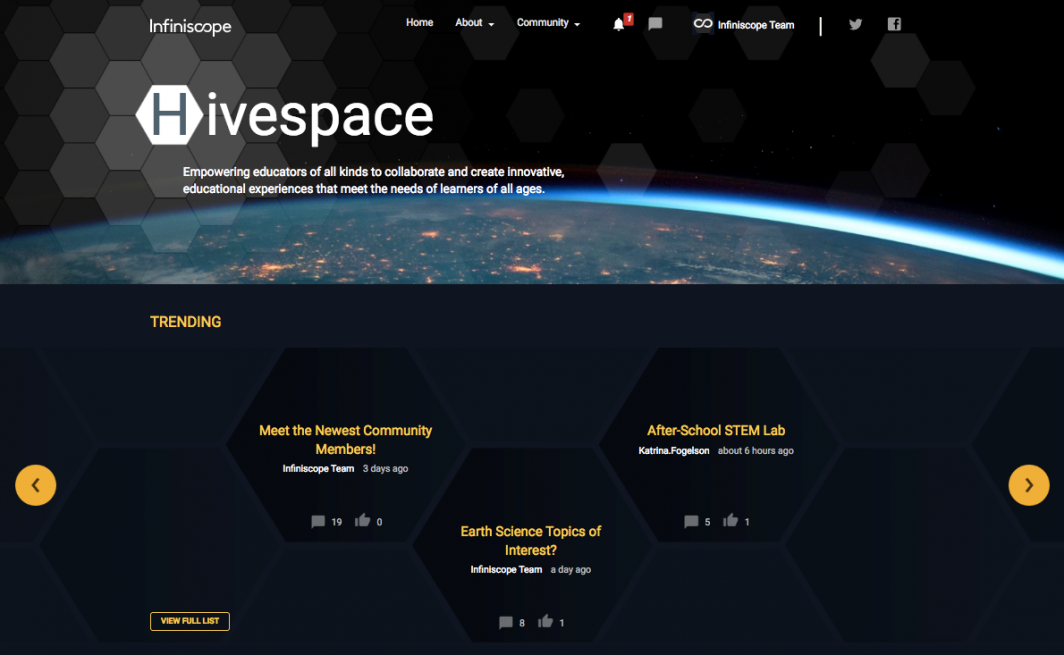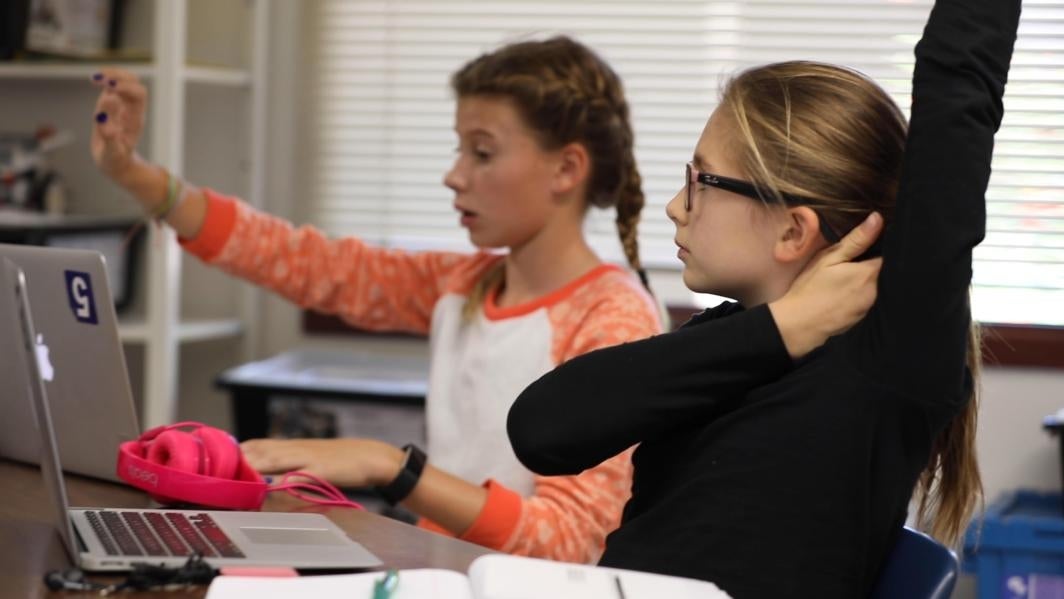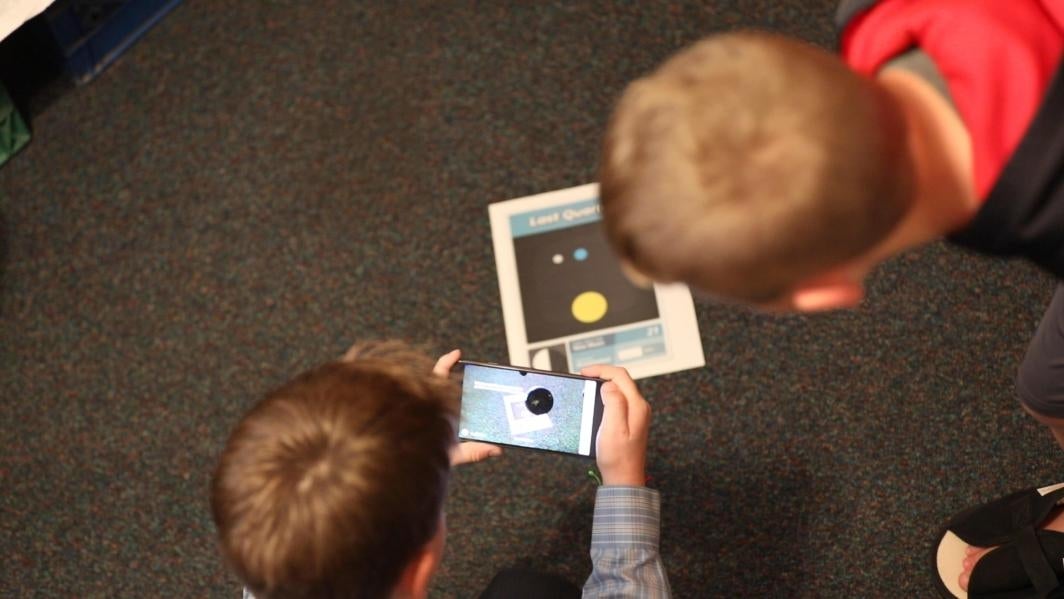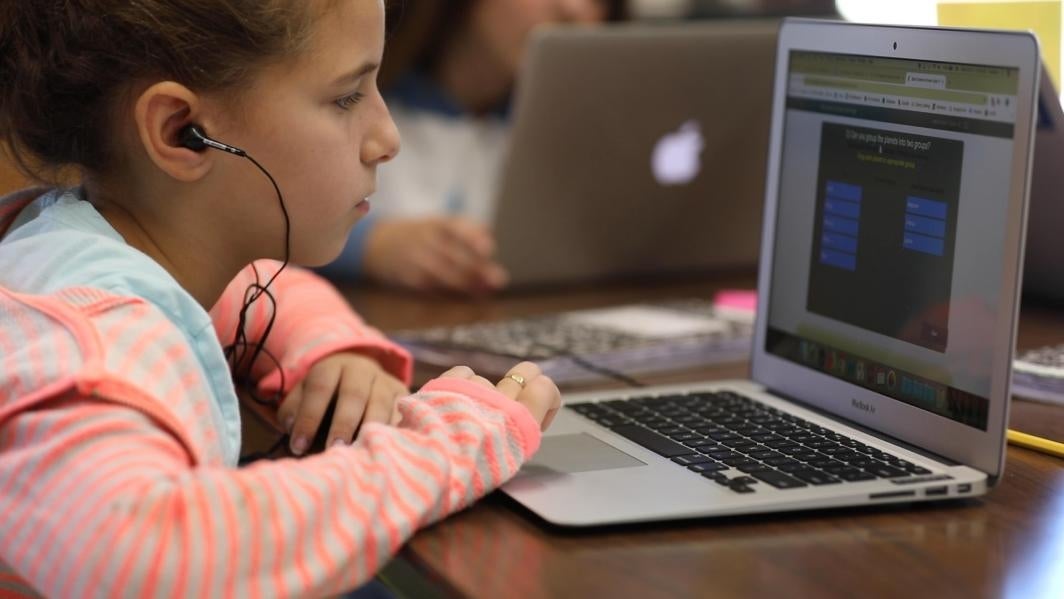ASU’s NASA-funded ‘Infiniscope’ program makes science accessible and interactive
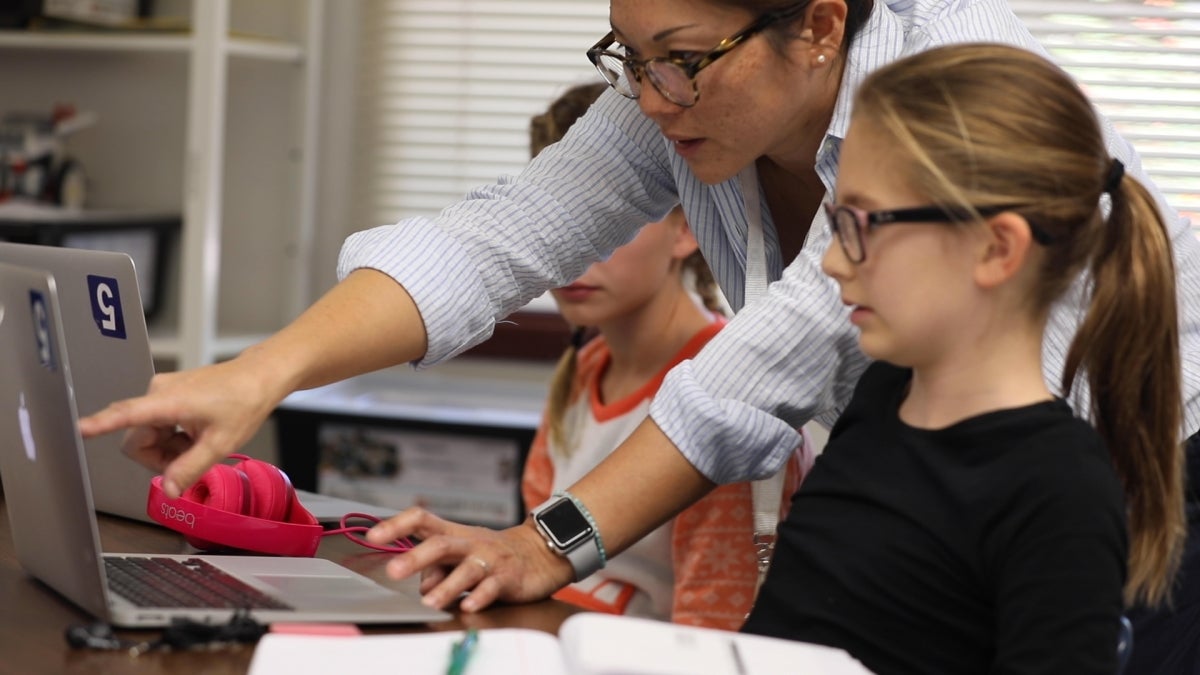
Infiniscope makes the vastness of space and space exploration inviting, accessible and interactive for educators and learners of all ages. Credit: ASU
Everyone can be an explorer — that’s the goal of Arizona State University’s NASA-funded digital teaching network, “Infiniscope.” This project is beginning its fourth year working with educators across the country and connecting them with cutting-edge Earth and space exploration experiences, funded by a $10.18 million grant from NASA’s Science Mission Directorate Science Activation Collective.
Infiniscope provides next-generation exploratory science activities and lessons designed to empower educators to collaborate, create and customize learning activities. The activities, which are powered by technology from Smart Sparrow, are unique in that they use NASA data and subject-matter experts, and they include adaptive feedback features for individual learners.
“Infiniscope is designed to take on two big challenges in using technology to teach science in schools,” explained astrobiologist Ariel Anbar, principal investigator of Infiniscope and President’s Professor with the School of Earth and Space Exploration. “How can we make amazing high-tech visualizations more useful to teachers and how do we empower teachers to be not just consumers, but creators, of digital learning experiences.”
To launch their fourth year of the program, the Infiniscope team has announced the members of the 2018-19 Education Advisory Board. This board represents a select team of educators who provide essential feedback on Infiniscope lessons, develop their own content tailored to their classroom and community and evaluate and review Infiniscope products.
“Learning how to integrate and develop my own lessons is the most impactful part of being on the board,” said returning board member Debbie Morgan, a science teacher at South Sevier High School in Richfield, Utah. “I created a lesson on the life cycle of stars and found the entire process very engaging. It provided me insight into how my students could better learn the concepts and how I could use the adaptive feedback features to help them be successful.”
Members represent a variety of states across the U.S. The majority of board members are educators in middle school and high school. The board also includes educators from libraries, after-school programs and science centers. Almost all members have more than 10 years of teaching experience.
The official 2018-19 Infiniscope Advisory Board members include returning members Morgan, Alison Oswald-Keene, Diane Ripollone, Elizabeth Sebastian, Helen Coyle, John Dupuis, Maki Fullerton and Noelle Luccioni. New members are Angenette Planter, Argy Leyton, Celeste Payne, Christine Girtain, Christopher Mick, Brian R. Shmaefsky, Homero Sanjuanero, Jayna Ashlock, Jeanine Gelhaus, Jose Octavio Rivas Jr., Juliana Ciccarelli, Kara Four Bear, Katrina Madok, Lindsey S. Dahl, Luna Dara Kelondra, Meridith Mitchell, Natasha Rabinowitz, Rafael Trujillo, Sian Proctor and Srividhya Sundaram.
Ripollone, who teaches Earth science and robotics at Cardinal Gibbons High School in Raleigh, North Carolina, said that through this program she was able to review and test many lessons offered on the Infiniscope website. “This opportunity has given me a chance to collaborate with other teachers across the country.”
The current board will serve from November 2018 to October 2019 and will be evaluating one product from beginning to end every six months for a total of two per year. In addition, the board will participate in monthly discussion forums and work to engage their local community.
“Serving on the Infiniscope advisory board offered a fantastic collaborative experience with educators from a variety backgrounds and interests,” said board member Morgan. “It provided a way for us to network, share ideas and provide feedback that otherwise wouldn't have been possible or easy to orchestrate.”
Using Infiniscope in the classroom
Dupuis, a returning board member who teaches environmental science and biology at St. Thomas More Catholic High School in Lafayette, Louisiana, said that the most impactful part of the program has been creating “real-life” science work in the classroom.
One of the programs Dupuis used, for example, features scientists in the field explaining what they are working on.
“Students could then use virtual scientific instruments to take readings and collect data,” said Dupuis. “Even the tedious aspect of some of this work was very realistic for the students in a manner I have yet to see through a computer simulation.”
This year, he hopes to continue an ambitious plan to create a detailed virtual field trip focused on Louisiana’s coastal erosion and restoration efforts.
“Technology has been in the classroom for a few decades now,” said Dupuis. “But its presence has dramatically increased in the last five years or so with the increasing number of schools implementing one-to-one programs for their students. The activities and virtual field trips through Infiniscope are well planned, aligned to curriculum standards and give an immersive, real-world experience of the type I have not seen before in its predecessors.”
Returning board member Luccioni, who is a teacher at the Philadelphia Performing Arts Charter School, has also found the program to be beneficial to her students and provided a new way for her to teach science.
“By using adaptive pathways and tech-based experiences that provide instant gratification for students, misconceptions can be corrected early, increasing students' self-efficacy for science,” explained Luccioni.
New to Infiniscope in 2019
In 2019, Infiniscope will be implementing a communication and discussion forum, called "Hivespace" for participating teachers.
“We want to empower educators not just with NASA content, but with powerful technology to achieve the goals of the schools and communities they serve,” said Infiniscope community manager Jessica Swann. “Hivespace provides our network of educators a space to collaborate and explore beyond the content. It's a community of practice for educators of all kinds.”
Educators who are interested in serving on the board next year first need to join the Infiniscope teaching network. Invitations to apply will be sent to teaching network members this year with selections occurring in late summer 2019 for the 2019-20 academic year.
“The Infiniscope Education Advisory Board members are an essential part of the success of Infiniscope, providing immediate feedback on how the experiences will work in both traditional and nontraditional settings,” said Anbar.
More Science and technology

ASU researcher part of team discovering ways to fight drug-resistant bacteria
A new study published in the Science Advances journal featuring Arizona State University researchers has found…

ASU student researchers get early, hands-on experience in engineering research
Using computer science to aid endangered species reintroduction, enhance software engineering education and improve semiconductor…

ASU professor honored with prestigious award for being a cybersecurity trailblazer
At first, he thought it was a drill.On Sept. 11, 2001, Gail-Joon Ahn sat in a conference room in Fort Meade, Maryland.…
